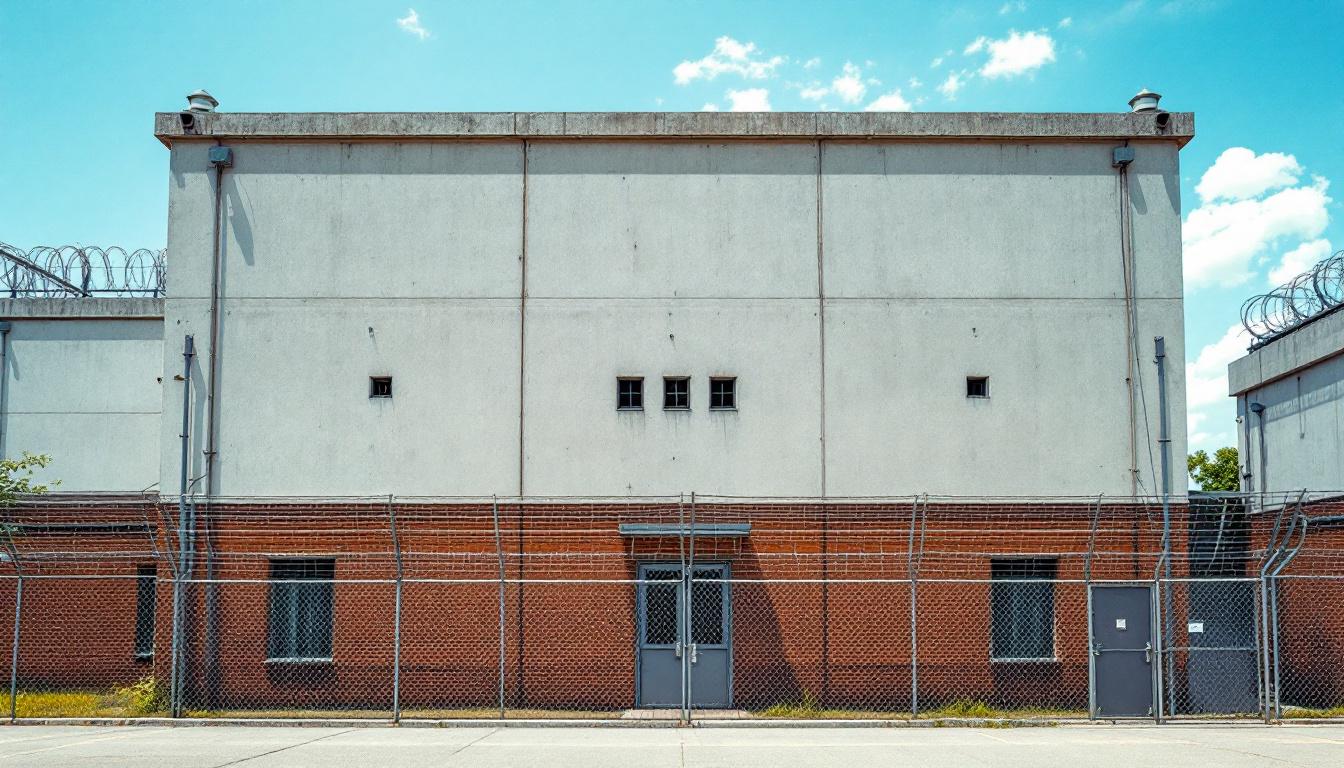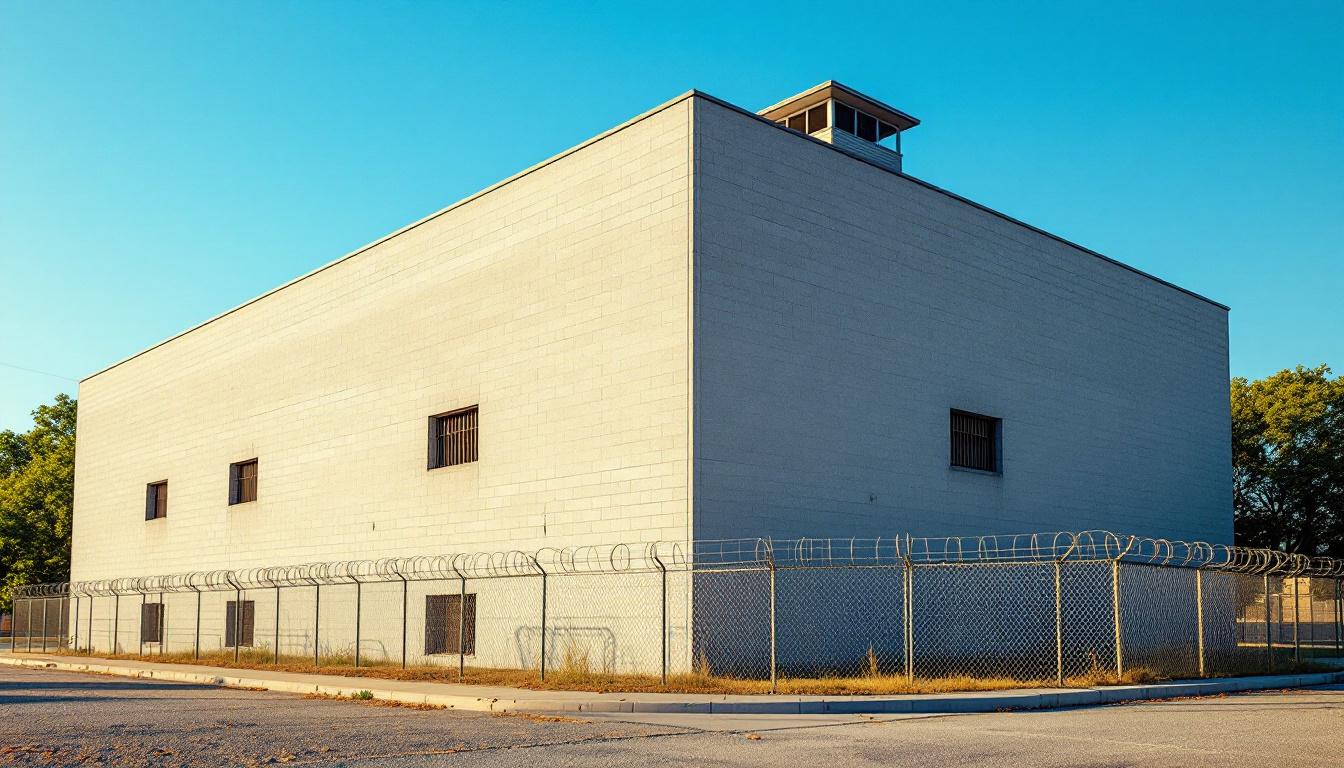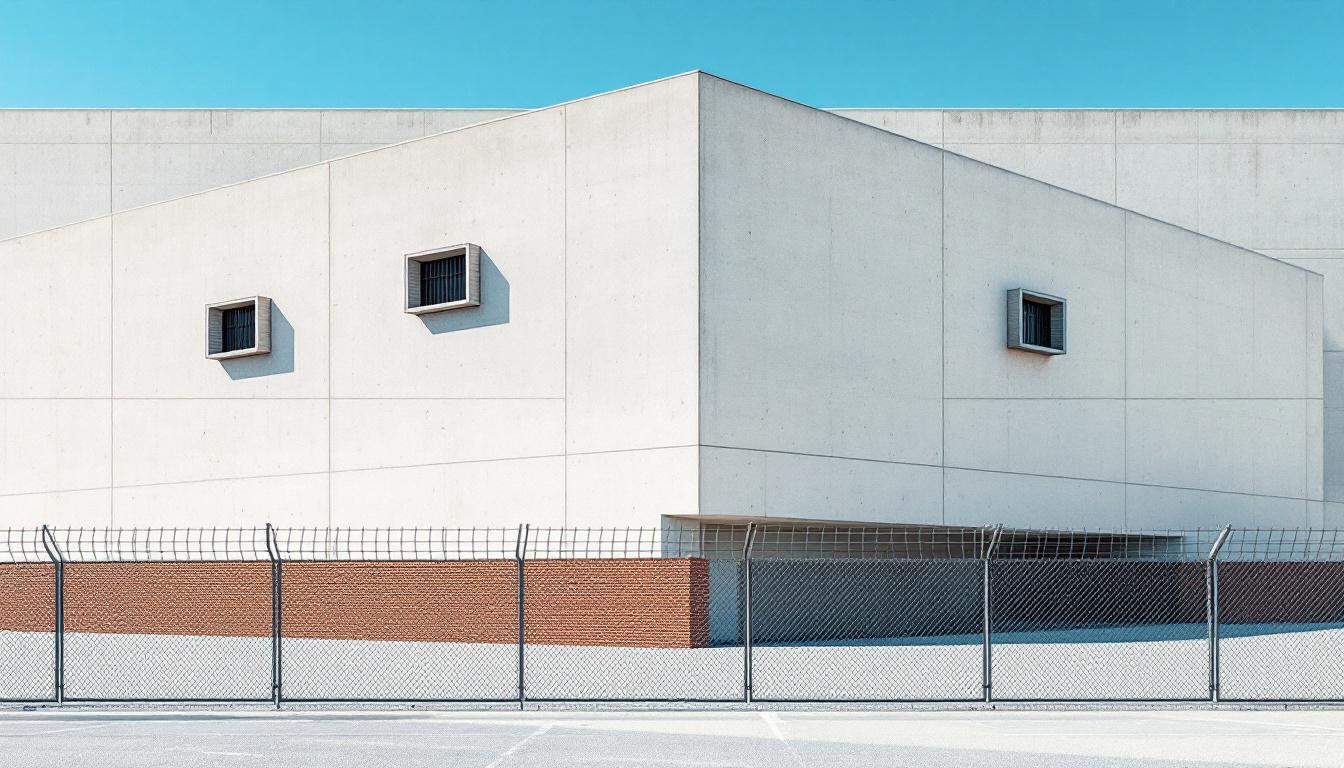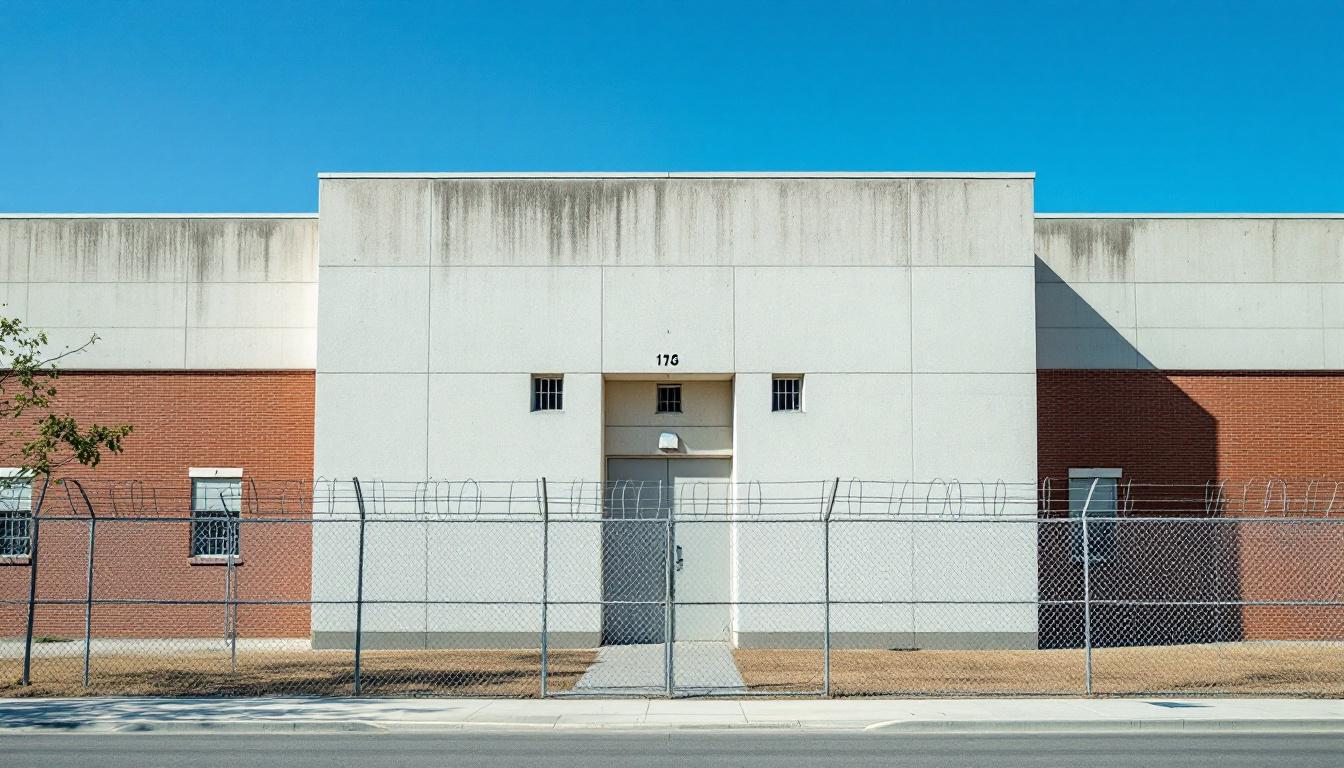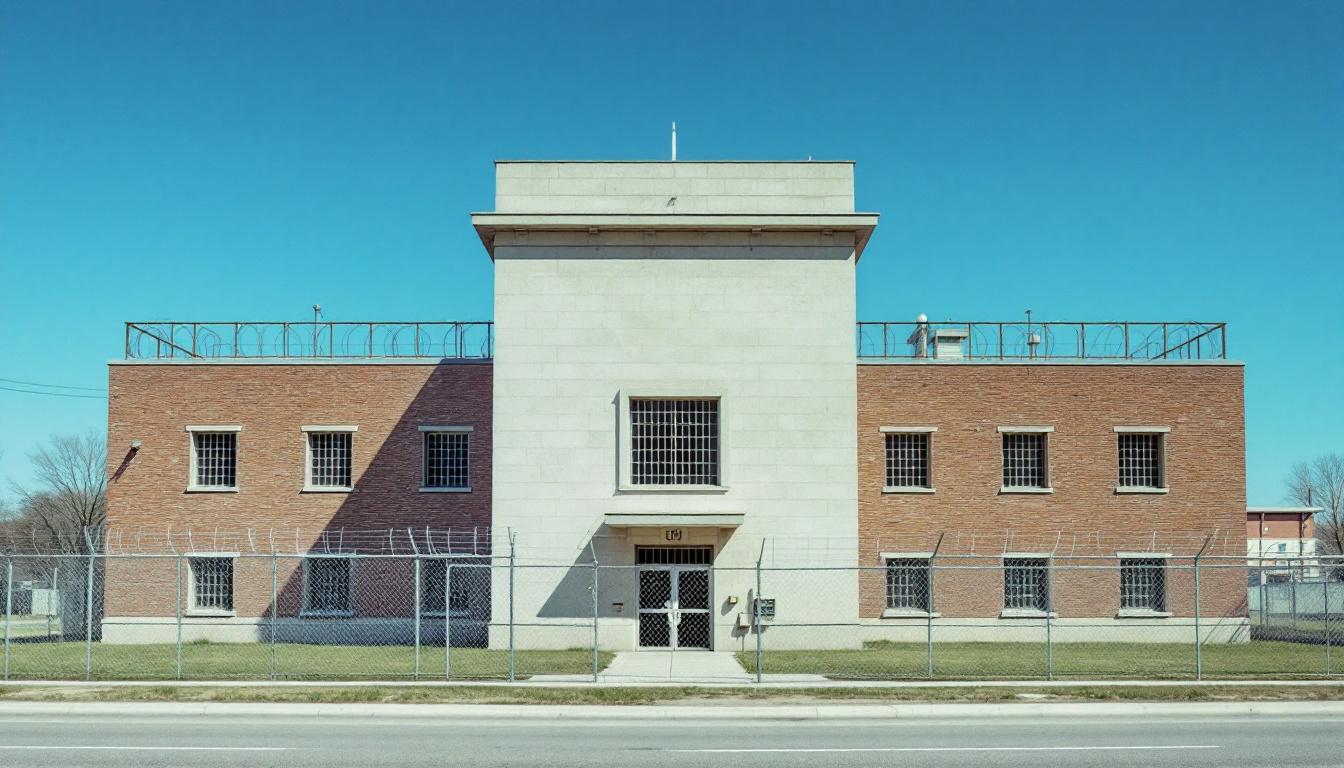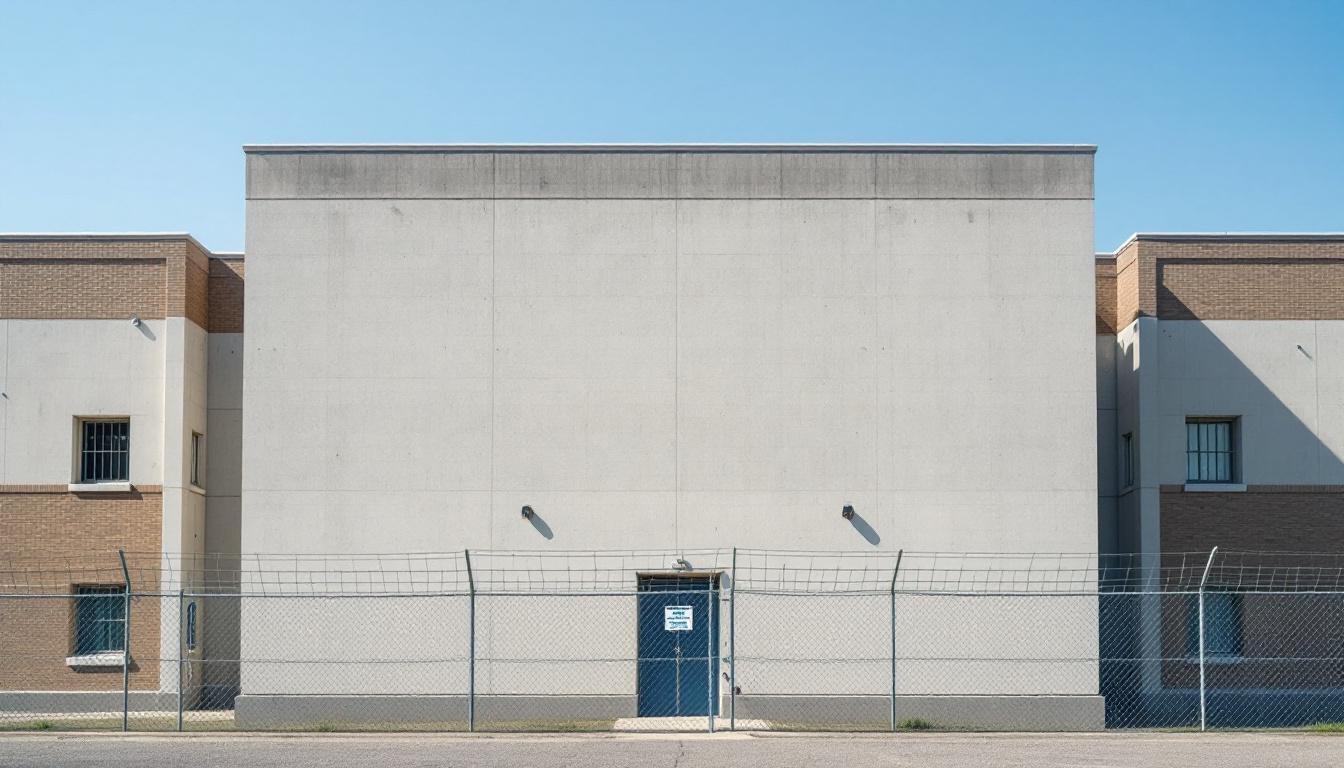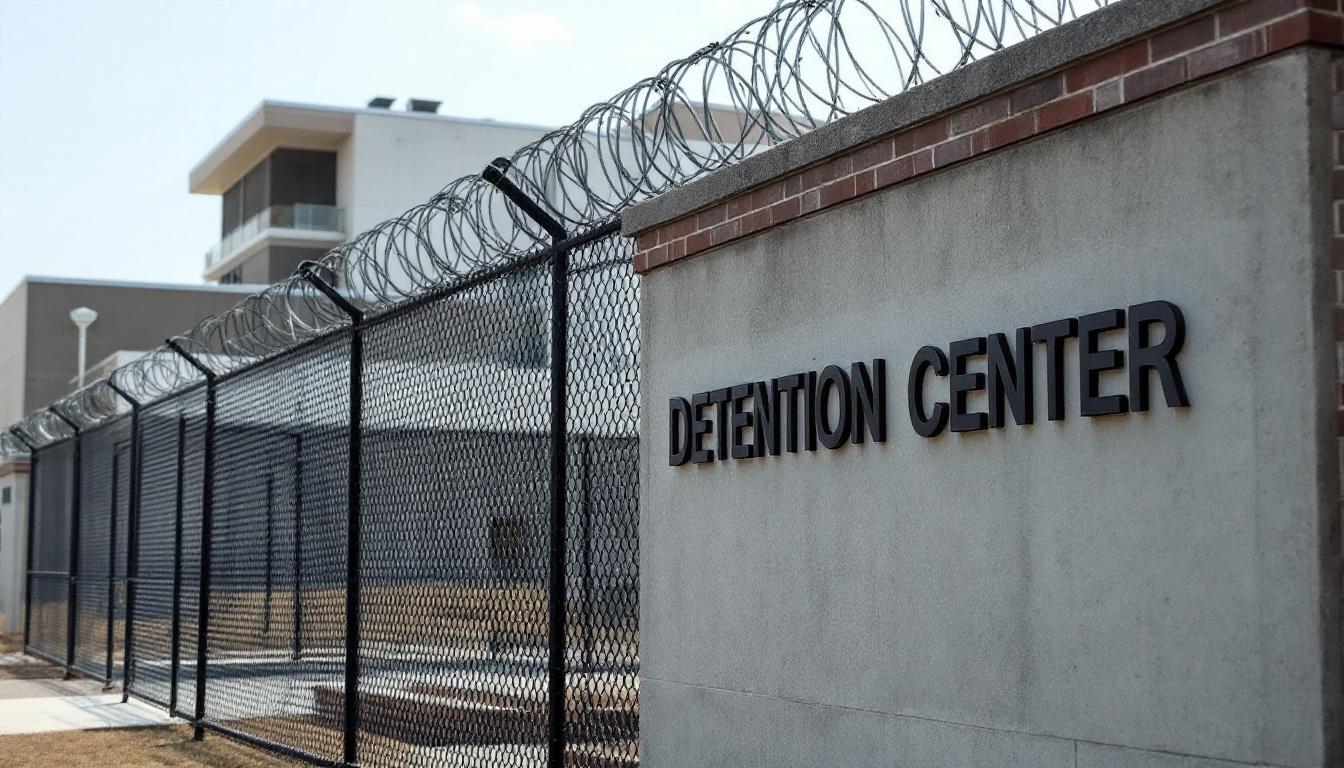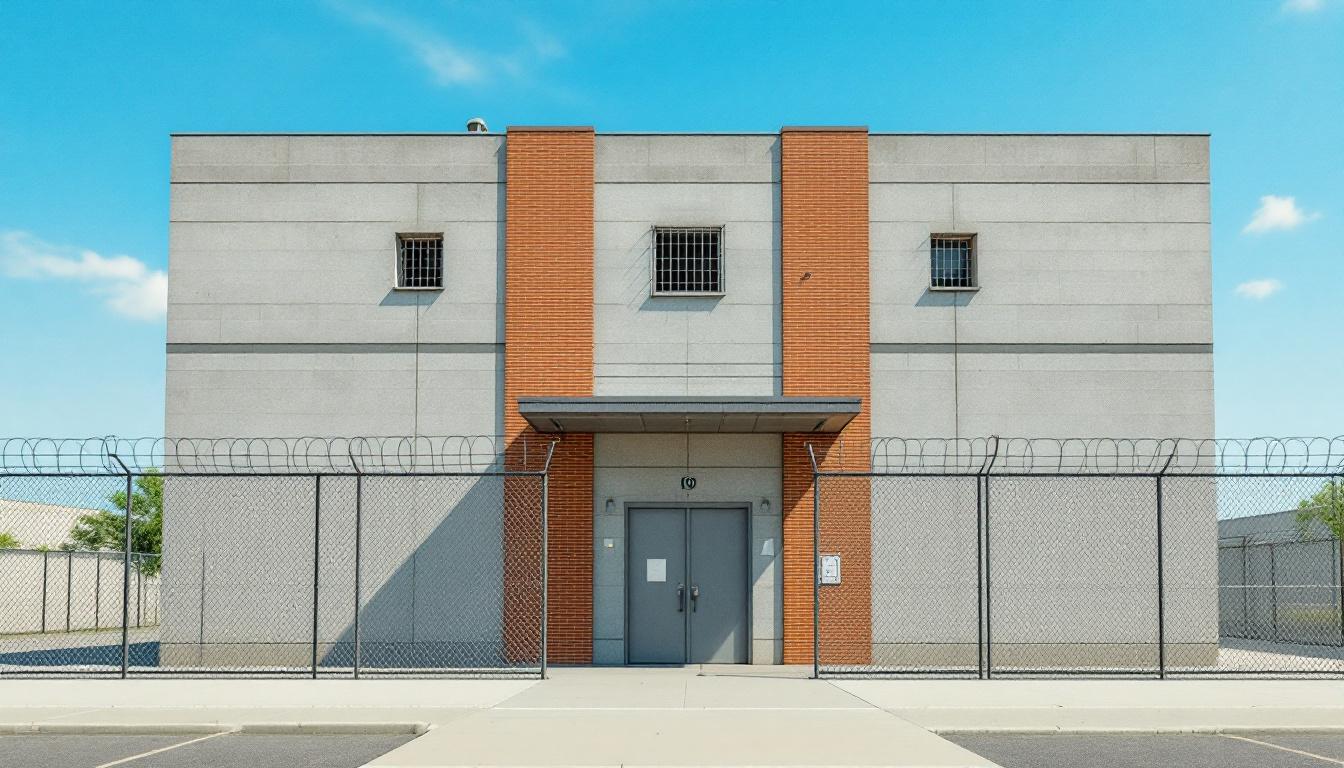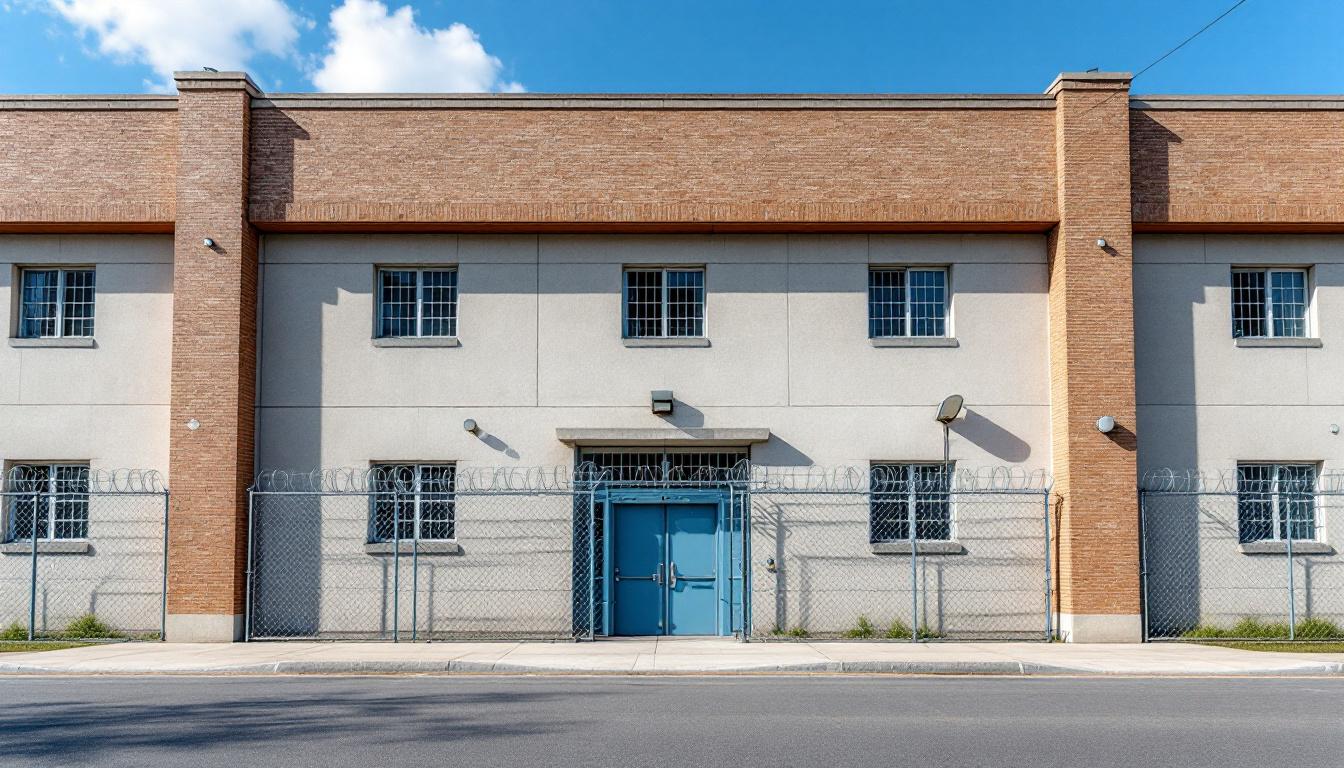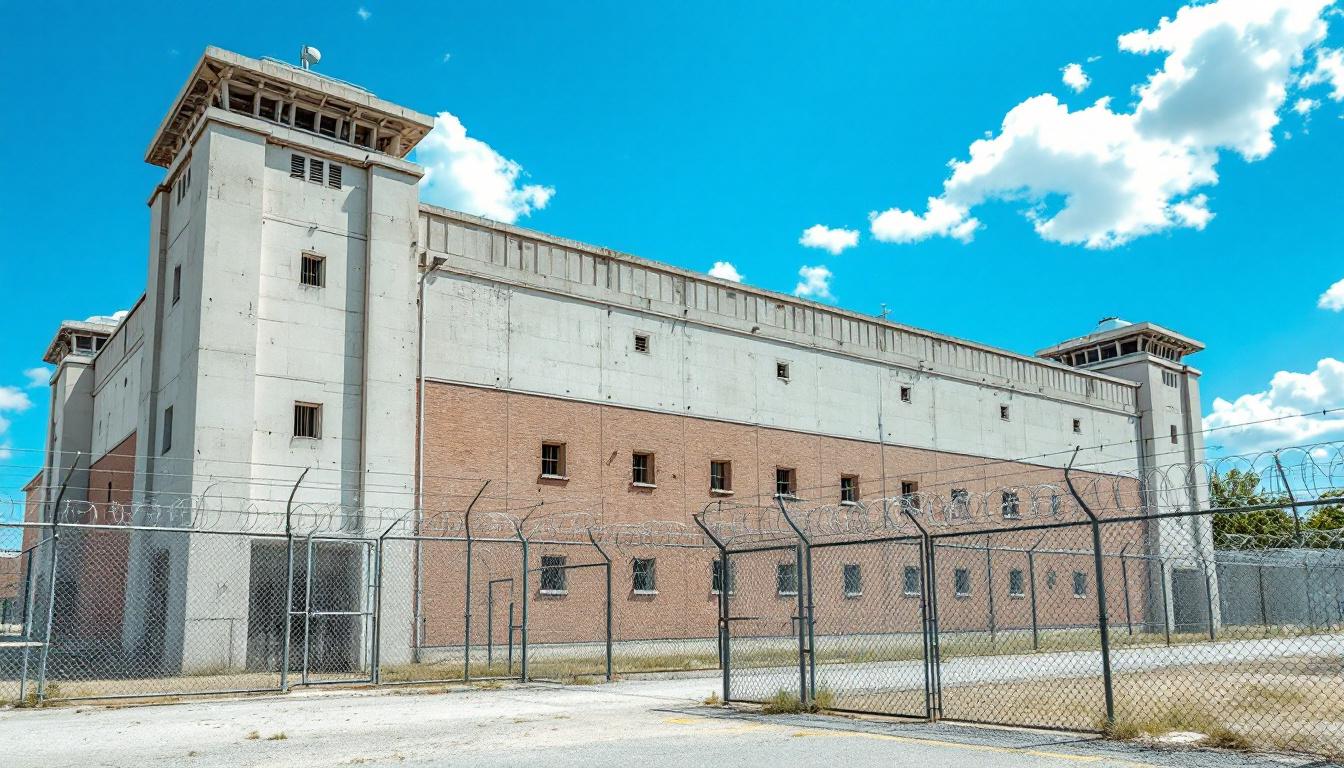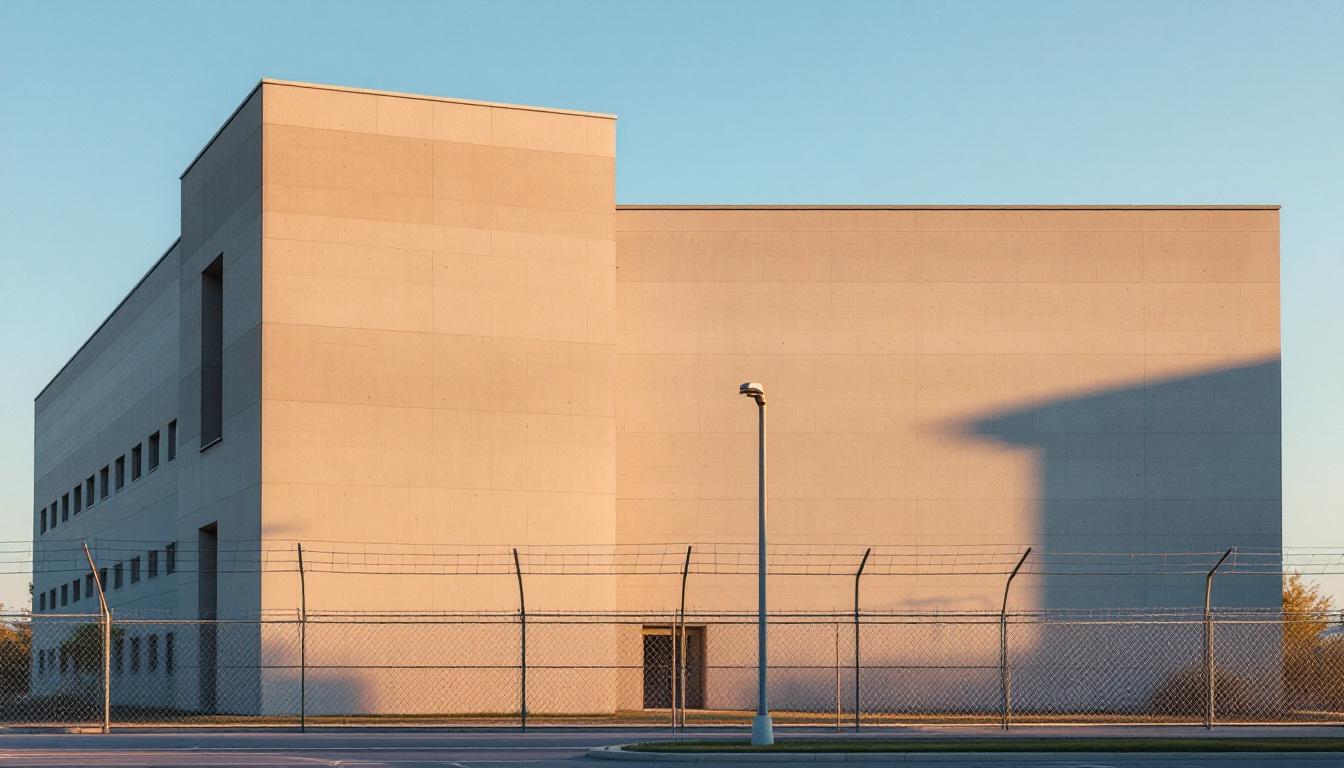
Quick Navigation
How to contact an inmate at Columbus County Detention Center
This comprehensive guide will walk you through how to connect with an inmate at Columbus County Detention Center. Follow the steps below to find an inmate and send letters and photos:
- Search for the inmate using our search tool below
- Create your account or log in to Penmate
- Write your message (up to 6,000 characters)
- Send instantly - inmates receive printed copies daily
Find an Inmate
Search for an inmate to start communicating today
Tip: You can search by first name, last name, or inmate ID number
To contact a person at Columbus County Detention Center start by searching for the person on the official facility website. Perform a search by following these steps:
- Step 1: Enter their first name and last name into the search form and click "Search"
- Step 2: Locate their inmate record
- Step 3: Write down their Inmate ID and any housing information provided
Important! Be sure to enter the person's full name. Nicknames should not be used.
How to Send Messages to Inmates

You can use your phone or computer to send emails, letters, and photos to an inmate. Messages are sent electronically to inmate tablets or kiosks at the facility. If you would like to send a message, start by searching for an inmate at Columbus County Detention Center.
Sending Photos and Postcards

A great way to send love and support to a loved one at Columbus County Detention Center is to send photos and postcards. It only takes a few minutes to send photos from your phone and it makes a huge difference. You can also mail postcards with words of support and inspiration, or design your own postcard for special moments like birthdays and holidays.
Important! Be sure not to send any explicit photos or they may not be approved by the facility. You can also use a photo printing app like Penmate to make sure your photos are printed at the correct size (4x6 or 3x5) and are mailed according to the rules and regulations of Columbus County Detention Center.
Frequently asked questions about Columbus County Detention Center
-
How long does it take to deliver a message?
If you're sending an email message your letter is usually delivered within 24-48 hours. For messages sent via mail you should expect delivery within 3-7 days. All messages will need be approved by Columbus County Detention Center.
-
How much does it cost to send a message to Columbus County Detention Center?
You can send a message free using your phone or mail a message via USPS for the price of a $0.60 stamp and envelope. You can also purchase credits or e-stamps from services starting at $1.99.
-
What services can I use to contact an inmate at Columbus County Detention Center?
Penmate
You can use Penmate to send letters and photos to an inmate from your phone. It's an easy way to stay in touch during your loved one's incarceration. Use the inmate locator to find an inmate's location and contact information, then you can send messages within a few minutes.
Securus messaging
Securus may be another option for communicating with an inmate at Columbus County Detention Center. You can create a friends and family account and purchase credits to send messages. All messages will be reviewed and must be approved by the facility.
JPay
Some county jails and state prisons may support sending messages with JPay. You must register an account with the system, find your loved one, and purchase stamps to send messages. For some locations you can also attach photos.
Smart Jail Mail
You may also check if Smart Jail Mail is available at Columbus County Detention Center. Smart Jail Mail is operated by Smart Communications and has contracted with some state and county jails. After purchasing credits, your messages and photos are sent to the facility, printed out, and then handed out to your loved one.
-
What is the mailing address of Columbus County Detention Center?
Mailing address:
Columbus County Detention Center
805 Washington St
Whiteville, NC 28472
Phone: (910) 640-6628 -
What are the visiting hours at Columbus County Detention Center?
Visiting hours at Columbus County Detention Center vary by housing unit and security level. Generally, visits are scheduled on weekends and holidays, with some facilities offering weekday visits. Contact the facility directly at (910) 640-6628 or check their website for the current visiting schedule. Visits typically last 30-60 minutes and must be scheduled in advance.
-
What items are prohibited when sending mail to Columbus County Detention Center?
Prohibited items typically include: cash, personal checks, stamps, stickers, glitter, glue, tape, staples, paperclips, polaroid photos, musical or blank greeting cards, hardcover books, magazines with staples, and any items containing metal or electronics. Only send letters on plain white paper with blue or black ink. Photos must be printed on regular photo paper (no Polaroids). Always check with Columbus County Detention Center for their specific mail policies.
-
How do I send money to an inmate at Columbus County Detention Center?
You can send money to an inmate at Columbus County Detention Center through several methods: 1) Online using JPay, Access Corrections, or the facility's approved vendor, 2) Money orders mailed directly to the facility with the inmate's name and ID number, 3) Kiosks located in the facility lobby, or 4) Over the phone using a credit or debit card. Fees vary by method, typically ranging from $2.95 to $11.95 per transaction.
-
Can I schedule a video visit with an inmate at Columbus County Detention Center?
Many facilities now offer video visitation as an alternative to in-person visits. At Columbus County Detention Center, video visits may be available through services like Penmate, Securus Video Connect, GTL, or ICSolutions. Video visits typically cost $10-20 for 20-30 minutes and must be scheduled in advance. You'll need a computer or smartphone with a camera and reliable internet connection. Contact the facility for their specific video visitation policies and approved vendors.
-
What identification do I need to visit an inmate at Columbus County Detention Center?
All visitors must present valid government-issued photo identification such as a driver's license, state ID, passport, or military ID. Minors must be accompanied by a parent or legal guardian who can provide the minor's birth certificate. Some facilities require visitors to be on the inmate's approved visitation list, which may require a background check. Contact Columbus County Detention Center for specific ID requirements and visitor approval procedures.
-
How can I find out an inmate's release date?
To find an inmate's release date at Columbus County Detention Center, you can: 1) Use the online inmate search tool if available, 2) Call the facility's records department, 3) Contact the inmate's case manager or counselor, or 4) Have the inmate provide this information during a call or visit. For privacy reasons, some facilities only release this information to immediate family members.
Facility Overview
Contact Information
Columbus County Detention Center805 Washington St
Whiteville, NC 28472
Phone: (910) 640-6628
Official Website
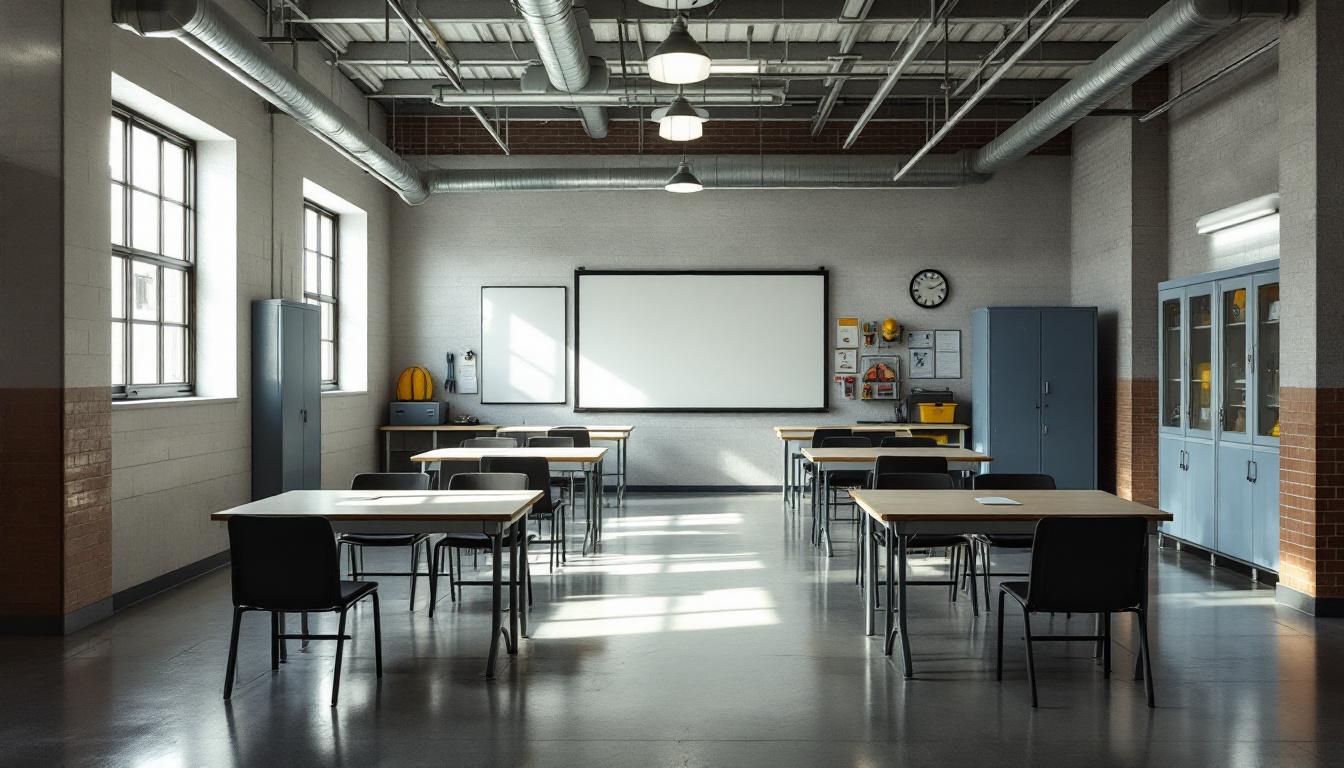
About Columbus County Detention Center
Detention centers within North Carolina's correctional framework serve as crucial transitional facilities where individuals await court proceedings while receiving structured programming designed to support eventual community reintegration. Columbus County Detention, NC operates within this essential capacity, providing secure housing and comprehensive services that align with the state's broader rehabilitative objectives. Located in Whiteville, this facility functions as an integral component of the regional justice system, emphasizing preparation for successful outcomes whether individuals return to their communities or transfer to other correctional settings.
The facility's operational philosophy centers on evidence-based approaches to behavior modification and skill development, recognizing that effective detention periods can significantly influence long-term recidivism patterns. Programming typically encompasses educational opportunities, substance abuse counseling, mental health services, and vocational training components that address the underlying factors contributing to criminal behavior. Columbus County Detention, NC may offer specialized tracks for different populations, including those with mental health needs, substance dependencies, or educational deficits, ensuring that the population services remain responsive to individual circumstances and community safety requirements.
Within Whiteville's correctional landscape, this NC correctional facility maintains strong connections to local support networks, facilitating family visitation programs and community-based reentry planning that begins during the detention period. The detention center's approach generally includes collaboration with regional service providers, court systems, and community organizations to create comprehensive transition plans that support successful outcomes. Through structured daily routines, therapeutic interventions, and pre-release preparation programs, the facility works to ensure that individuals leaving custody possess enhanced skills, improved decision-making capabilities, and strengthened community connections that promote long-term stability and reduced criminal justice involvement.
Programs & Services
Through comprehensive programming designed to address individual needs, Columbus County Detention typically provides a foundation of support that helps the population develop essential life skills and prepare for successful community reintegration. The facility's approach often emphasizes personal growth and rehabilitation, recognizing that meaningful change occurs when individuals have access to structured learning opportunities and therapeutic interventions. This supportive environment may supply various pathways for participants to address underlying issues while building practical skills that benefit both personal development and family relationships.
Educational services form a cornerstone of the facility's programming, often including basic literacy instruction, GED preparation, and college correspondence courses that allow motivated individuals to pursue higher education goals. These academic opportunities typically provide structured learning environments where the population can develop critical thinking skills and expand their knowledge base. In addition to this, vocational training programs may offer hands-on instruction in various trades and practical skills, helping participants build marketable abilities that can support employment opportunities upon release and contribute to long-term stability.
Support services and therapeutic programs typically address the complex challenges many individuals face, with substance abuse programs often providing counseling and education to help participants understand addiction and develop coping strategies. Sex offender treatment may supply specialized therapeutic interventions designed to address behavioral issues and promote accountability. The facility often includes practical support services such as printing capabilities for legal documents and correspondence, while veteran services may offer targeted assistance to former military personnel, recognizing their unique needs and experiences. These comprehensive programs typically work together to create a supportive network that addresses both immediate needs and long-term reintegration goals.
Daily Life & Visitation
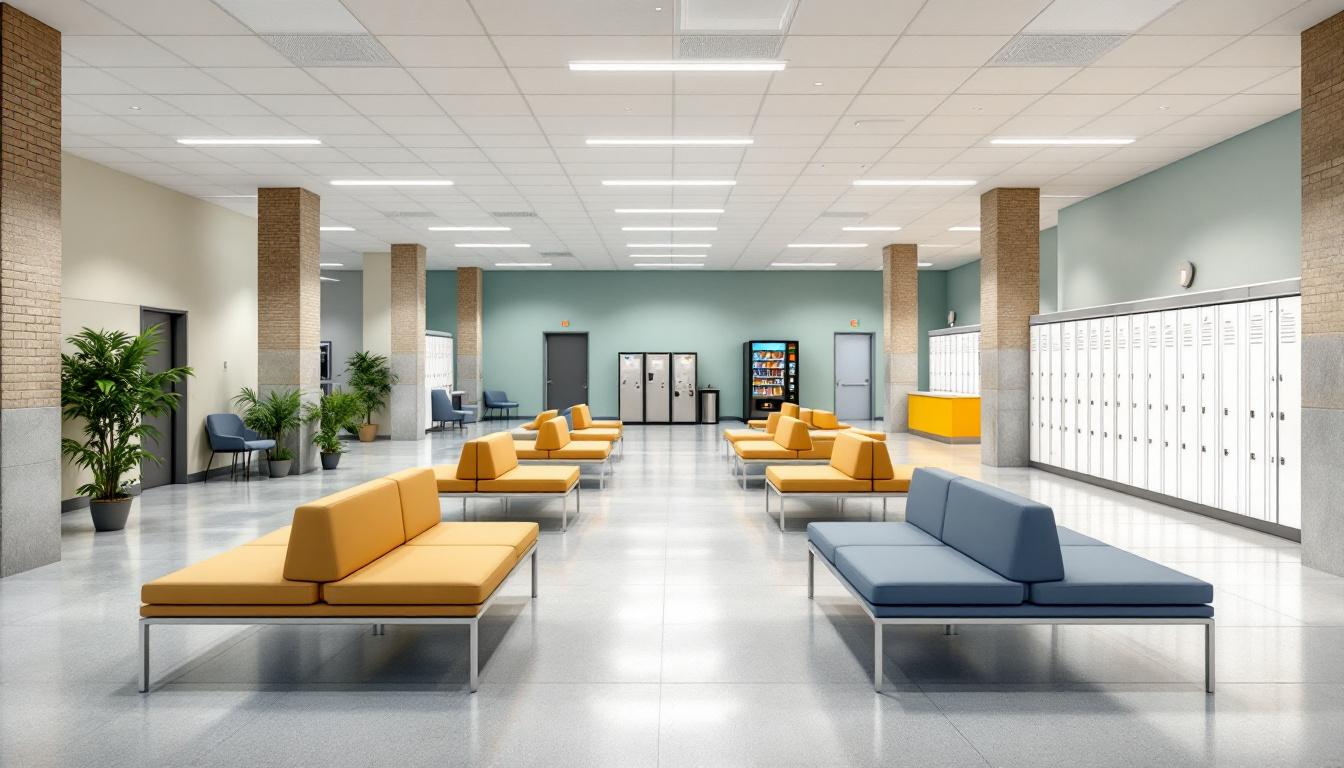
Organizational systems at Columbus County Detention currently shape every aspect of daily life through carefully structured routines that continue to provide stability for the population. The facility typically operates on a schedule that begins with early morning counts and continues through designated periods for meals, programming, and recreation. Housing units generally follow a systematic approach to managing daily activities, with staff coordinating movements between different areas of the facility. Security procedures supply the framework within which all daily operations occur, ensuring both safety and order throughout the facility.
Living accommodations at the facility typically house the population in dormitory-style or cell-based units, depending on classification levels and available space. Each housing area generally includes common spaces where residents may gather during designated periods, along with basic amenities such as restroom facilities and areas for personal hygiene. The population usually has access to limited personal property, with items often stored in designated spaces within their assigned living areas. In addition to this, commissary services may be available on scheduled days, allowing residents to purchase approved items to supplement their basic needs.
Despite this structured environment, the facility typically offers various programming opportunities that supply educational and recreational activities for the population. Work assignments within the facility generally include kitchen duties, cleaning responsibilities, and maintenance tasks that help residents contribute to daily operations while developing skills. Recreation periods usually provide opportunities for physical exercise and social interaction within supervised settings. Family connections continue to be supported through scheduled visitation periods and communication options such as phone calls, though these services typically operate within established security protocols and may involve associated costs for the population and their families.
Ready to Connect?
Start communicating with your loved one today
Search for an Inmate
